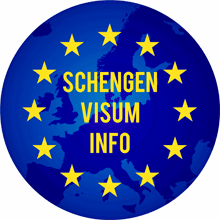What is the EU Visa Code?
The Schengen treaty has ensured that border control extends from the Dutch border to the outer border of the Netherlands Schengen area is moved. With this, control over the conditions for granting visas was transferred from national governments to the EU.
These conditions are laid down in the EU Visa Code ( Regulation (EC) No 810/2009 of the European Parliament and of the Council of 13 July 2009 establishing a Community Code on Visas (Visa Code). On 2 February 2020, parts of the EU Visa Code were amended.
What are the main points of the EU Visa Code?
Below are the main points of the EU Visa Code:
- A Schengen visa entitles you to a maximum stay of 90 days in any 180-day period.
- A visa can be issued for one or more visits.
- A Member State is responsible for issuing visas if it is the only destination, if it is the main destination in terms of length or purpose, if no main destination can be identified and the Member State is the first destination.
- A visa applicant must be present in person to submit an application, but Member States may waive this obligation in certain cases. In any case, personal presence is required when fingerprints are to be taken.
- A visa applicant must bring his or her application form, travel document and photo, have fingerprints taken, pay for the visa, the policy of a medical travel insurance and provide supporting documents demonstrating:
- What the destination is;
- Which accommodation is used;
- The capacity to provide for your own maintenance;
- The intention to leave on time.
- A Member State may waive the requirement for supporting documents in certain cases.
- De visa application is turned down as:
- Someone cannot demonstrate that they meet the conditions;
- One of the documents is false or raises reasonable doubt;
- The person is seen as a threat to public order, national security or public health.
- Schengen countries work together as much as possible to apply the established conditions equally.
- The price of a visa is 80 euros. Exemptions apply to children under the age of six, pupils, students, researchers and young members of NGOs. For most countries with which a visa facilitation agreement has been concluded, a reduced fee of 40 euros applies, as well as for children between the ages of 6 and 12.
- An external service provider may charge an additional service fee. This may not exceed half of the visa price.
- In principle, the processing of the visa application must take place within 15 days. Extension of the treatment period to 30 days and in exceptional cases to 60 days is possible.
- Member States must deploy sufficiently qualified staff to guarantee the quality of service.
- A Member State may, on the basis of bilateral agreements, handle the visa application on behalf of another Member State, the so-called “visa representation”.
- Cooperation between Member States is possible by sharing equipment, facilities and staff. As a 'last resort', an external service provider can be engaged to collect application documents, but the assessment remains the responsibility of the Member State.
- Accredited commercial intermediaries may submit visa applications on behalf of others, with the exception of biometric information.
Changes to the EU visa code as of February 2, 2020
As of 2 February, parts of the EU visa code for Schengen have been amended. We list the most important changes:
- The application for a Schengen visa can be submitted up to 6 months before the intended date of travel to the Schengen area. That was a maximum of 3 months. One must apply for a Schengen visa no later than 15 days before the date of entry.
- The costs (leges) for an adult will be increased to 80 euros (that was 60 euros), children from 6 to 12 years old pay 40 euros. Children under 6 years old stay for free.
- The service costs of the External Service Provider are no longer bound to a maximum of half of the visa fee. These may amount to a maximum of 80 euros (which was a maximum of 30 euros).
- Applications for a Schengen visa may also be submitted electronically, but the visa holder must then still appear for the fingerprints to be taken (unless these have already been issued earlier).
- Embassies are no longer obliged to collect visa applications themselves. The Dutch embassy will often require visa applicants to use an External Service Provider. In almost all cases, that is VFS Global.
- A visa application is processed within 15 calendar days, in individual cases this can be extended to a maximum of 45 calendar days (previously this was a maximum of 60 calendar days).
- A multiple entry visa (MEV) should be issued more often to visa applicants who comply with the rules.
- This MEV is initially valid for 1 year if the applicant has obtained three visas in the previous two years and used them lawfully. If you have previously received an MEV for one year, a new MEV will be valid for 2 years. If you have already received an MEV for 2 years, the next one will be an MEV for 5 years.
- Other matters such as the burden of proof for return, guarantee, medical insurance and the like remain unchanged.






